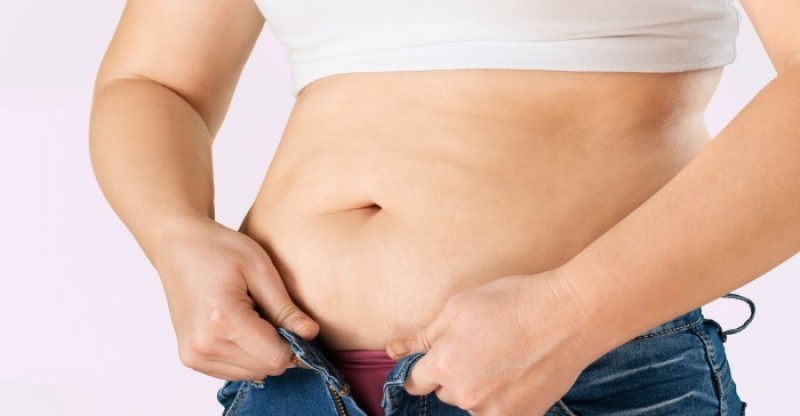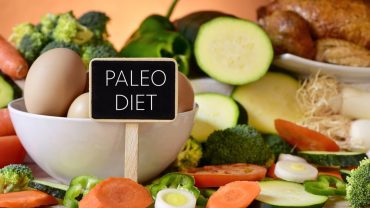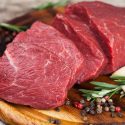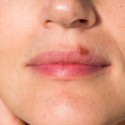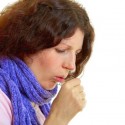8 Bad Habits You Should Quit To Lose Weight
Why can’t I Lose Weight?
“Why can’t I lose weight?” has become a universal question that you probably have asked yourself a couple of times.
One day you looked at yourself in the mirror and decided it was time to drop those extra pounds — maybe for your health or to feel better about your physical appearance — so you decided to sign up to the gym and start a diet.
But it’s been a while now, and though you’ve been following your diet, you don’t seem to be losing any weight.
So you switch diets, and when the next one doesn’t work you switch again and so on.
What are you doing wrong?
Losing weight can be challenging, and maybe you’re sabotaging your efforts without even knowing it by indulging in bad habits.
A habit is something you do without stopping to think it through.
We develop them because they save us time and energy, in addition to giving us a sense of comfort and reward.
Bad habits are negative behaviors patterns, and the sooner you identify them, the easier it is to eliminate them.
When it comes to losing weight, you have to let go of some bad habits you probably haven’t even identified yet.
You may think old habits are hard to break, but it can be easier than you think!
You just have to replace them with good ones.
Here are 8 bad habits you should quit if you want to lose weight.
Drinking Diet Soda
It’s only logical to think that switching from sugar-based soda to a non-sugar-based one should be good for your health.
However, it is one of the worst things you can do for your health and your weight loss plans.
Although they don’t contain any calories, they do have artificial sweeteners, which trick your body into thinking that calories are coming.
When this doesn’t happen, your metabolism slows down and your body’s ability to regulate appetite is altered.
According to studies, consuming products that have been artificially sweetened can result in gaining more weight than by consuming those that are sweetened with regular sugar.
In addition to this, according to an analysis of studies, drinking or eating artificially sweetened products has been associated with high blood pressure, heart disease, and type 2 diabetes.
There are many beverages you can drink to replace soda.
If you want the energy buzz without the weight gain you can drink black tea.
If you want to drink something that will make you feel fuller without the calories you can try sipping flavored sparkling water.
Skipping Meals
By thinking that skipping one or several meals will help you lose weight you may be achieving the exact opposite.
It’s not only bad for losing weight, but it’s also harmful to your health.
When you skip a meal your blood sugar levels drop, which will make you feel tired and foggy for the rest of the day.
It can also cause irritability and mood swings.
In addition, skipping a meal makes your metabolism slow down making you feel hungrier.
So when the next meal rolls around, you’re more likely to overeat.
In fact, a study from the American Journal of Epidemiology discovered that people who skip the morning meal were 4.5 times more likely to be overweight for these very same reasons.
You can speed up your metabolism by eating small portions of nutritious food throughout the day, this way your organism will receive a constant source of energy which will help facilitate energy release and weight loss.
Experts recommend eating 6 small meals a day instead of the traditional 3 big ones, in which you should include plenty of fruits and vegetables.
Eating More Calories than You Need
If your goal is to lose weight, you need to regulate how many calories you’re eating daily.
Consuming more calories than you need results in an accumulation of body fat and weight gain, regardless of whether the calories come from protein, fat, carbohydrate or alcohol (1).
You can get enough nutrients without consuming excessive calories by eating dense foods and beverages such as vegetables, fruits, whole grains, low-fat dairy products, and lean protein foods.
Also, keep in mind that since calorie intake must be balanced with physical activity to control weight gain, you should stay active by practicing a sport, going to the gym, running, doing yoga, or doing any form of exercise.
You can find several calorie calculators online that will help you estimate your calorie needs based on your age, weight, height and physical activity.
There are also apps and websites that can help you track and regulate your daily calorie intake.
Avoiding All Fats
There are good fats and bad fats.
The good ones are unsaturated fats, which can help lower your cholesterol levels and reduce your risk of heart disease.
The bad ones are called saturated fats, which are mainly found in animal products and have been known to increase the risk of colon and prostate cancer, in addition to being bad for your cholesterol levels (2).
Countless people believe that all fats are bad fats and you shouldn’t eat them if you want to lose weight.
But in reality, eating more healthy fats can help you lose weight, since they prevent cravings, help you stay full longer, and keep your blood sugar levels balanced.
It is also essential for your health since our body needs dietary fat in order to function properly, and consuming the right kind of fats can maximize your metabolism and speed nutrients throughout your bodies such as vitamins, minerals, and free-radical fighting antioxidants.
Some healthy fats you should include in your diet are coconut, avocado, dark chocolate, nuts, nut butter, whole eggs, Greek yogurt, wild salmon, olive oil, tuna, flax and chia seeds, duck, and cheese.
Not Getting Enough Sleep
Getting a good night’s rest is a necessity, not a luxury, yet many people don’t do it.
This may be one of the reasons why you’re struggling with your weight.
Sleep deprivation makes you run low on energy during the day, so what do you do?
You grab a couple of cups of coffee and a sugary snack to give you an energy buzz.
You might be able to fight sleepiness for a while, but you’ll probably get unwanted pounds from turning to high-calorie foods for energy (3).
Studies show that those who are sleep deprived are 55% more likely to be obese than those who get quality rest every night.
A lack of sleep disrupts the production of appetite hormones, which may make you feel hungrier the next day and maybe even cause you to binge on food.
This doesn’t mean that the more you sleep the more weight you’ll lose, it means that if you’re sleeping too little or not getting the quality sleep your metabolism isn’t working properly.
On average, we need 7.5 hours of quality sleep per night.
If you have trouble falling asleep at night, you should avoid drinking coffee in the afternoon since it may cause you to sleep poorly.
Exercise has been shown to improve sleep quality, so remember to stay active.
Also, you should watch what you eat right before going to bed since big, heavy meals increase the risk of heartburn and other gastric issues that can definitely keep you up all night.
Drinking Alcohol
Alcohol can affect your weight because of several.
First off, alcohol is higher in calories than you may realize.
It contains seven calories per gram, while protein and carbohydrate have approximately four calories per gram and fat has nine.
Having a few drinks after work may not seem unhealthy, but the calories in those drinks can quickly add up.
The worst part is, calories in alcohol are considered “empty calories” since they don’t provide any nutrients.
As you may know, alcohol tends to have a domino effect; even after one drink your inhibitions are lowered and your appetite increases.
Binge drinking can be associated with binge eating, since heavily drinking affects the part of the brain that controls appetite and thirst, tricking your body into thinking you’re starving.
This is why at the end of the night you’re likely to end up at a fast-food place, which doesn’t help you with your plans of losing weight.
Consciously cutting back or eliminating alcohol altogether can make a huge difference in your weight loss.
You can start eliminating this bad habit by alternating every alcoholic drink you have with a glass of water, which will slow down the rate of your drinking and keep you hydrated.
You can also try limiting alcohol in a specific way, like only allowing yourself a pint of beer one night a week.
Keeping track of how much you drink can be difficult, but you can find apps that can help you regulate your alcohol intake and where you can set goals for reducing your intake.
Eating too Quickly
It takes approximately 20 minutes from the time you start eating for your brain to send your body signals of fullness.
This means that when you eat too quickly you may be eating more than what you actually need to feel full.
Eating slowly allows ample time to trigger the signal from your brain that you’re full, meaning that you’ll feel full by eating less.
Furthermore, eating slowly and mindfully enhances the pleasure of dining.
According to Melissa Milne, author of The Naughty Diet, taking the time to set the mood — lighting some candles, putting some music, turning off the TV— increases the satisfaction you get from eating, which means you’re less likely to overeat.
Pleasure also relaxes your body, which helps digestion and revs up your metabolism.
Try to eat more consciously by turning off any distractions and setting the mood even when you’re alone.
Pour yourself a glass of your favorite wine, use your fine china, and pay attention to the sensory details in every single bite you take — temperature, sound, smell, texture, mouthfeel, even food presentations.
This is a simple way to eat more mindfully and start dropping pounds.
You should also try chewing every bite at least 20 times and be pacing yourself.
Not Drinking Enough Water
Staying hydrated is essential for all of your body’s functions, and studies have found that the more water you drink, the better your chances of staying thin.
Drinking water increases the number of calories you burn, which is known as resting energy expenditure.
What’s more, drinking cold water increases resting energy expenditure, since your body uses extra calories to warm up the water to your body temperature.
Also, since water is calorie free, drinking it is linked with reduced calorie intake.
When you drink water instead of other beverages which are often high in calories and sugar, you reduce your calorie intake by 9% (or 200 calories) approximately (4).
Water also helps speed up your metabolism and remove toxins, in addition to keeping you hydrated and giving your skin and hair shinier.
The common rule is you should drink 2 liters of water per day (about eight 8-oz glasses), however, this depends entirely on the individual.
For example, people who exercise regularly may need more water than those who live a sedentary life.
You should keep in mind as well that you can also find water in many foods and beverages such as coffee, tea, milk, and especially in fruits and vegetables.
Conclusion
Though losing weight can be tough, the results are worth it.
It can boost your self-esteem and improve your overall health (as long as you don’t over do it).
If you’ve been trying to lose weight for a while but you’re not seeing any difference, don’t get discouraged.
You just need to be more conscious and mindful about what you’re eating and drinking and how you’re doing it.
The first step to eliminating bad habits is to recognize them.
Now that you know which habits are bad for your weight loss goal and how to fix them, you’ll be able to break them, and though it may take time and willpower, once you do you’ll see you’ll start dropping those extra pounds like hot potatoes!
Do you have any other tips on losing weight?
If you have any comments or suggestions, please leave a comment below.
FDA Compliance
The information on this website has not been evaluated by the Food & Drug Administration or any other medical body. We do not aim to diagnose, treat, cure or prevent any illness or disease. Information is shared for educational purposes only. You must consult your doctor before acting on any content on this website, especially if you are pregnant, nursing, taking medication, or have a medical condition.
HOW WOULD YOU RATE THIS ARTICLE?
